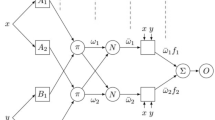Abstract
Software development effort estimation plays a crucial role in the successful completion of any software development project. Estimating the software development effort accurately is one of the challenges in the software industry. In this paper a soft computing technique named Meta Cognitive sequential learning is used to improve the software development effort estimate of a software project. Different datasets namely, Deshernais, NASA, Kitchenham, Maxwell, Telecom, IBM, Kemerer, Hallmark and ISBSG are used in the training and testing of the estimation process. The performance comparison of the former method is compared with other methods such as Particle swarm optimization, Genetic Algorithm and Back propagation network using Mean magnitude of relative error (MMRE) parameter. It is found that the MMRE of Meta cognitive neuro fuzzy method is less than the MMRE of other methods taken for comparison. Thus the Meta cognitive neuro fuzzy method can produce a better estimate of the software development effort and hence can produce an estimate with much precision to the actual effort.







Similar content being viewed by others
References
Adriano LI, Petronia L, Richardo MF, Marcio L (2010) GA based method for Feature selection and parameter optimization for machine learning regression applied to software cost estimation. Inf Softw Technol 52:1155–1166
Albercht AJ, Gaffney JR (1983) Software function, Source Lines of code and development effort prediction: a software science validation. IEEE Trans Softw Eng 9(2):639–648
Attarzadeh I, Ow SH (2010) A Novel Algorithmic cost estimation model based on soft computing Technique. J Comput Sci 6(2):117–125
Babu GS, Suresh S (2012) Meta-cognitive neural network for classification problems in a sequential learning framework. Neurocomputing 81(1):86–96
de Barcelos Tronto IF, da Silva JDS, Sant'Anna N (2007) Comparison of artificial neural network and regression models in software effort estimation. In: International Joint Conference on Neural Networks, pp 771–776. https://doi.org/10.1109/IJCNN.2007.4371055
Bardsiri VK, Jawavi DNA, Hashim SZM, Khatibi E (2013) A PSO Based model to increase the accuracy of software development effort estimation. Softw Qual J 21:501–526
Basavaraj M, Shet K (2007) Activity-based software estimation using work break down structure. In: Sobh T (ed) Innovations and Advanced Techniques in Computer and Information Sciences and Engineering. Springer, Dordrecht, pp 105–110. https://doi.org/10.1007/978-1-4020-6268-1_20
Boehm BW (1981) Software engineering economics. Prentice-Hall, New Jersey
Costagliola G, Ferrucci F, Tortora G, Vitiello G (2005) Class point an approach for the size estimation of object oriented systems. IEEE Trans Softw Eng 31(1):52–74
Cuauhtemoc LM, Claudia I, Arturo C (2012) Software development effort prediction of industrial projects using generalized regression neural network. Empirical Softw Eng 17:738–756
Dave VS, Dutta K (2011) Neural Network based software effort estimation& Evaluation criteria MMRE. Second International conference on computers and communication Technology (ICCCT), pp 347–351
Haykin S (1999) Neural Network: a comprehensive foundation, 2nd edn. McMaster University, Ontario, Canada
Heiat A (2002) Comparison of artificial neural network and regression models for estimating software development effort. Inf Softw Technol 44:911–922
Jorgensen M, Shepperd M (2007) A Systematic review of software development cost estimation studies. IEEE Trans Softw Eng 33(1):33–53
Kumar S, Chopra V (2013) Neural Network and Fuzzy logic based frame work for software development effort estimation. Int J Adv Res Softw Eng 3(5):759–763
Li Y, Xie M, Goh T (2010) Adaptive Ridge Regression system for software cost estimating on multi-collinear datasets. J Syst Softw 83:2332–2343
Maxwell KD (2002) Applied statistics for software managers. Prentice-Hall, New Jersey
Mendes E, Lokan C (2008) Replicating studies on cross vs single company Effort models using the ISBSG database. Empirical Softw Eng 13(1):3–37
Mohammad YA (2010) Analogy based software project effort estimation. PhD Thesis, Department of computing. School of computing. Informatics and Media. University of Bradford
Ochodek M, Nawrocki J, Kwarciak K (2011) Simplifying effort estimation based on Use case point. Inf Softw Technol 53:200–213
Praynlin E, Latha P (2013) Performance analysis of software effort estimation models using Neural Network. Int J Inf Technol Comput Sci 5(9):101–107
Praynlin E, Latha P (2014) Software effort estimation using radial basis function network. World Acad Sci Eng Technol 8(1):258–263
Praynlin E, Latha P (2018) Performance analysis of FCM based ANFIS and ELMAN Neural Network in software effort estimation. Int Arab J Inf Technol 15(1):94–102
Putnam L (1978) A General Empirical solution to the Macro software sizing and Estimation problem. IEEE Trans Softw Eng 4(4):345–361
Reifer DJ, Boehm BW, Chulani S (1999) The Rosetta Stone – Making COCOMO 81 Estimations Work with COCOMO II. CrossTalk J Defence Softw Eng 11–15
Sharma V, Verma HK (2010) Optimised fuzzy logic based frame work for effort estimation in software development. Int J Comput Sci Issues 7(2):30–38
Shepperd M, Schofield C (1997) Estimating software project effort using analogies. IEEE Trans Softw Eng 23(12):736–743
Shin M, Amrit L (2000) Empirical Data modelling in software engineering using radial basis function. IEEE Trans Softw Eng 26(6):567–576
Shukla KK (2000) Neuro – genetic prediction of software development effort. Inf Softw Technol 42:701–713
Subraminan K, Suresh S (2012) A meta-cognitive sequential learning algorithm for Neuro-fuzzy inference system. Appl Soft Comput 12(11):3603–3614
Suresh S, Dong K, Kim HJ (2010) A sequential learning algorithm for self-adaptive resource allocation network classifier. Neurocomputing 73(16–18):3012–3019
Walkerden F (1999) An Empirical study of analogy based software effort estimation. Empirical Softw Eng 4:135–158
Author information
Authors and Affiliations
Corresponding author
Additional information
Publisher's Note
Springer Nature remains neutral with regard to jurisdictional claims in published maps and institutional affiliations.
Rights and permissions
About this article
Cite this article
Praynlin, E. Using meta-cognitive sequential learning Neuro-fuzzy inference system to estimate software development effort. J Ambient Intell Human Comput 12, 8763–8776 (2021). https://doi.org/10.1007/s12652-020-02652-1
Received:
Accepted:
Published:
Issue Date:
DOI: https://doi.org/10.1007/s12652-020-02652-1




